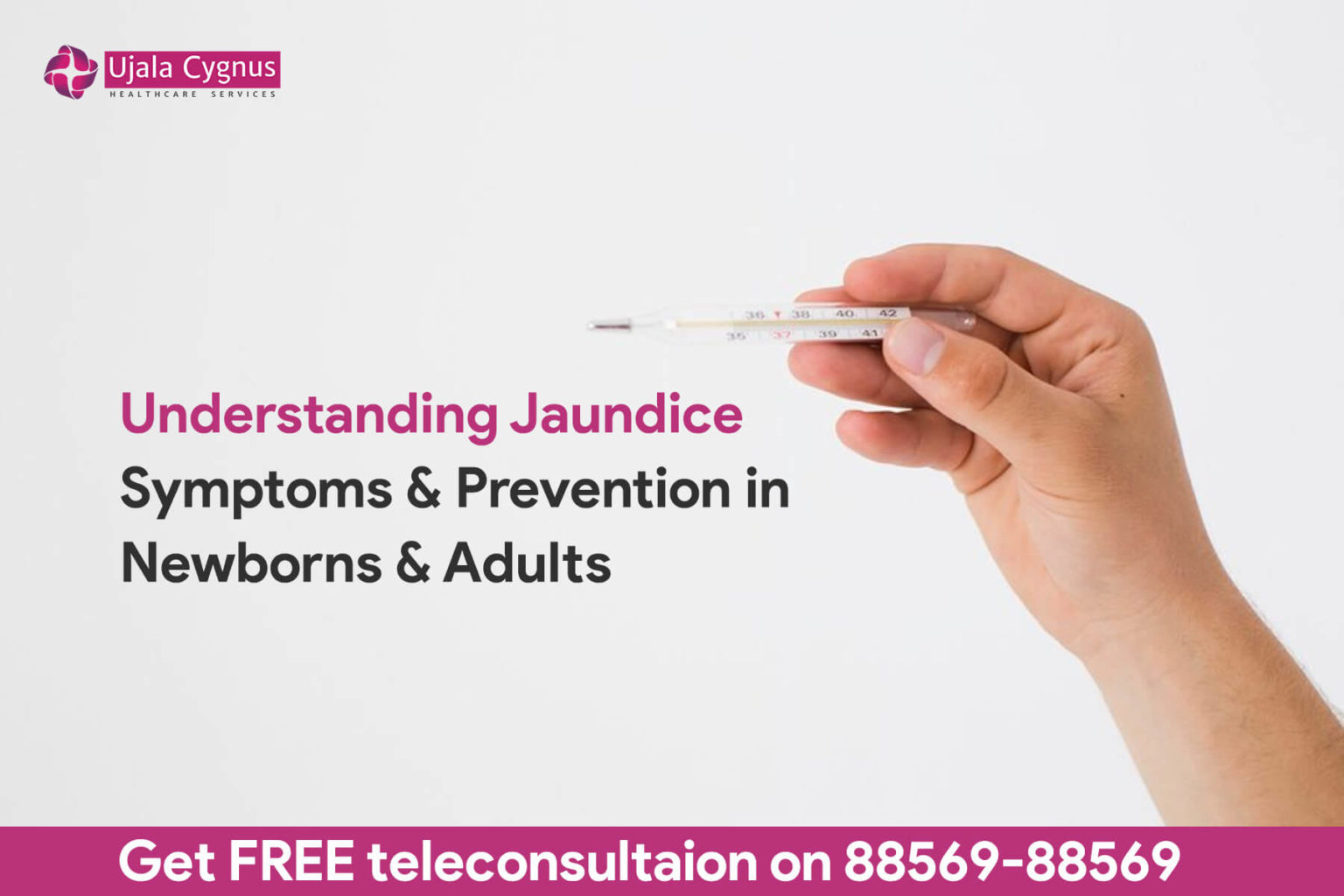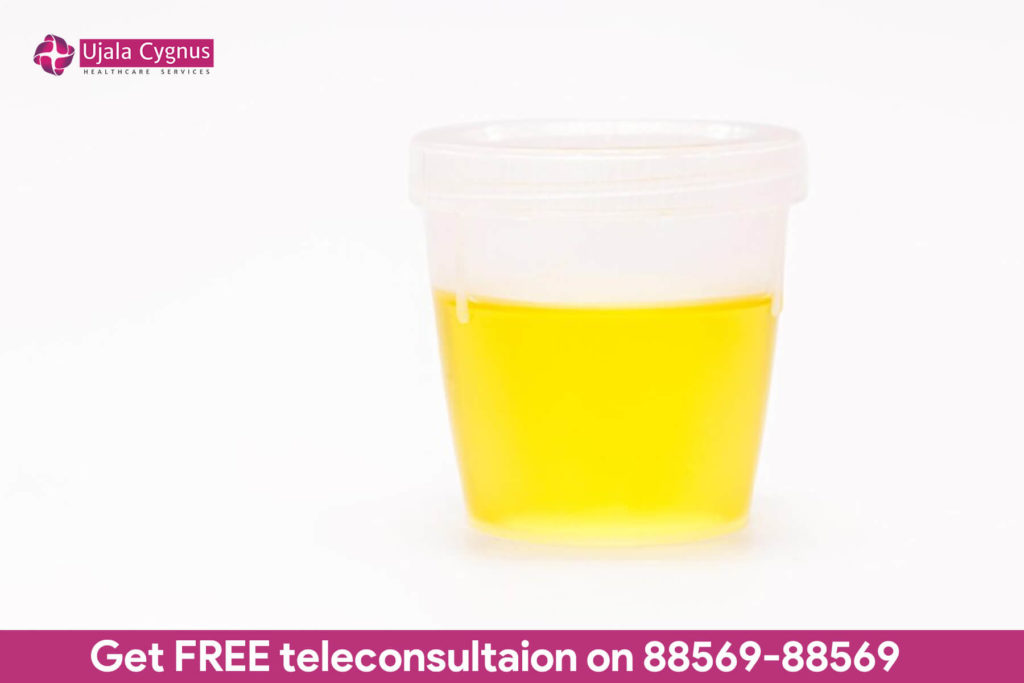Understanding Jaundice Symptoms & Prevention in Newborns & Adults

Jaundice is a skin condition that causes the skin, mucous membranes, and the whites of the eyes to turn yellow.
Jaundice is not an illness; it is a symptom of various underlying diseases.
It could be a symptom of a problem with the liver, pancreas, red blood cells, or gall bladder.
Allow us to enlighten you on a few interesting facts about this illness before looking at the symptoms and prevention of jaundice in adults and newborns.
Symptoms of Jaundice
Jaundice is not an illness; however, it is a symptom of an underlying disease process. As a result, a person with jaundice experiences varying degrees of skin yellowing depending on their medical condition.
In most cases, the person does not experience any symptoms of jaundice at first. However, symptoms may begin to show as the illness worsens.
Adults may experience the following symptoms of jaundice:
- Fever with chills
- Abdominal pain
- The colour of the skin turns yellow
- Pale-yellow coloured stool
- Skin irritation
- Dark urine
- Vomiting and Diarrhoea
- Loss of appetite
- Headache
- Weight loss
- Swelling of legs
- State of confusion
- Nausea
- Fever
- Cold, cough, and other flu-like symptoms

If you have any of the listed above symptoms, it is highly recommended to get free teleconsultation with our doctor. Call 88569-88569.
Symptoms of jaundice in newborn babies include:
- The whites of the eyes, insides of the mouth, soles of the feet, palms and hands turn yellow
- Pale stool
- Loud-volume crying
- Feeding issues
- Yellow urine
- Convulsion
- Drowsiness

If you want to know about the causes of jaundice in adults and newborns, you can read the related blog.
Prevention of Jaundice
Jaundice cases are rising due to the lack of awareness. If followed, some precautionary steps are listed below and can help prevent or reduce the risk of jaundice in adults and newborn babies.
Jaundice prevention for adults
- Keep hygiene and sanitation
Proper cleanliness and sanitation are the most basic and essential steps in preventing infectious diseases like jaundice.
- Consume warm and fresh foods
If food is undercooked or in unsanitary conditions, there is a considerable risk of infection.
- Drink filtered water
Jaundice can spread by water; it is recommended that you drink only clean water.
- Maintain a healthy lifestyle
Jaundice can occur due to excessive use of alcohol. It’s also a good idea to keep a healthy body weight because excessive cholesterol raises the chance of other health concerns, which can lead to jaundice.
- Vaccination
Hepatitis immunization is required to prevent jaundice. It is especially critical for persons traveling to areas where the disease is endemic or working in high-risk environments like hospitals or medical labs.
Jaundice prevention for neonates
- Brest-feeding
Proper breastfeeding is the best way to prevent jaundice in newborns. Feeding immediately after birth is suggested to avoid jaundice in newborns.
- Expose the newborn baby to light
Ultraviolet (UV) rays react with bilirubin, converting it to a form that does not need to be excreted through the baby’s liver. It eliminates excess bilirubin from the body and lowers the risk of jaundice.
Conclusion
We can not prevent jaundice; however, we can manage it with a healthy lifestyle. To avoid the problems of jaundice, live a healthy and active lifestyle.
If you and your baby are experiencing any of the above symptoms, it is suggested that to get free teleconsultation with our doctor, call 88569-88569.
Also read this – Learn More About Jaundice
Frequently Asked Question (FAQs)
How do you check for neonatal jaundice at home?
Gently touch your baby’s forehead or nose to check for neonatal jaundice. If the skin you pushed appears yellow, your kid most likely has mild jaundice. If your newborn child does not have jaundice, the skin colour should appear slightly lighter than normal for a short period.
Is jaundice serious in adults?
Jaundice is a symptom of a health problem, not a disease. It could indicate a problem with the liver, gallbladder and pancreas. If you have jaundice, you should see your doctor for a health check-up as soon as possible.
Ujala Cygnus Healthcare Group has 16 hospitals. Kanpur, Rewari, Kashipur, Varanasi, Sonepat, Panipat, Kurukshetra, Nangloi in Delhi, Rama Vihar in Delhi, Kaithal, Bahadurgarh, Karnal, Moradabad, Haldwani, and Agra.
You can book an appointment at your nearest Ujala Cygnus Hospital for any health issue treatment. For any query, you can give a missed call on 88569-88569 and get a free consultation over the phone.
